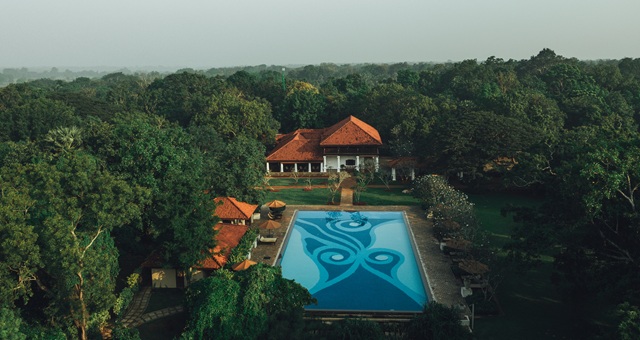Sri Lankan hospitality company Uga is measuring its success not by the number of properties in its portfolio but by the impact it’s having on the communities it operates.
With six resorts across Sri Lanka, Uga is looking at how its operations can bring benefits to the people, wildlife, land and waters surrounding it to preserve them for generations to come.
“We firmly believe in creating meaningful impact through our business operations,” Uga Escapes Resorts Head of Sustainability and ESG, Dilshan David, told HM.
“Building stronger connections with the communities in which we operate, prioritising the well-being of our colleagues, and fostering awareness and action are key to our success, ultimately leading to guest satisfaction.”
As well as adhering to the Global Sustainable Tourism Council (GSTC) guidelines – its properties maintain an average of 20% renewable energy usage – Uga plays an active role in achieving United Nations Sustainable Development Goals (UNSDG).

“We keep a continued connection with the local communities, including schools, NGOs, government bodies and religious places,” David explained.
As part of its long-term sustainability strategy that aims to address environmental, social, cultural, economic, quality and human rights issues in Sri Lanka, Uga is looking at issues that have a direct impact on its stakeholders, prioritising three categories: Water, Women and Wildlife.
“The 3Ws – Water, Wildlife and Women – are the key aspects of our CSR initiatives,” said David.
“We have identified that these are very important to our business environment; all of Sri Lanka being a Biodiversity Hotspot, increasing water scarcity and less representation of females in the hospitality industry.
“Through internal processes as well as collaborations with other stakeholders, we are committed to facilitating an impactful change towards the betterment of business, the surrounding environments and our stakeholders, which can also provide more experience for our guests.”
In 2021, Uga established a Reverse Osmosis (RO) plant in the village of Athungama in Anuradhapura, near Uga Ulagalla. In this region, poor water quality has contributed to a high incidence of kidney disease. This life-saving plant has become a crucial source of safe drinking water for over 250 families. Uga has also established several other RO plants in the years since.
Women are highly underrepresented in Sri Lanka in general, and in the field of hospitality, account for less than 10% of the workforce, compared to 54% globally.
In four years, Uga has increased the number of female employees in the company by 5%, to 16%, and is aiming to increase that to 20% across all properties by 2026.
“Out of the six resorts, two are headed by female managers,” said David.
“There are female staff members working with us for more than a decade who joined as line-level staff and now hold executive positions. Out of the four sustainability staff members we have, two are women.
“We prioritise employment of women, ensuring that they have adequate facilities, support, training and due recognition; and actively encourage women from local communities to join us.

“In some areas, we purchase cooked food from local women which is served to our guests, and some are given the opportunity to conduct live cooking for the guests.”
Uga’s work with wildlife primarily centres on the tackling the issue of Human Elephant Conflict (HEC) which is at the highest level in Sri Lanka compared to any other country in the world.
Uga states that between 2009 and 2019, over 1610 elephants died as a result of intensifying Human-Elephant Conflict, which occurs when humans and elephants share the same area.

Uga is investing in electric fencing projects to protect cultivated land and ensure elephants have adequate lands on which to roam and thrive.
Uga has also partnered with Sri Lankan elephant conservationists on an Elephant Research Centre to educate staff, guests and local community on the concept of living in harmony with elephants.


